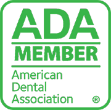Emergency Dentistry: When Immediate Treatment Is Required

Emergency dentistry is a branch of dentistry that focuses mainly on addressing issues that require urgent treatment. A regular dental appointment might require you to wait one or two weeks for the next open slot on your dentist’s schedule. That is not an option when dealing with dental issues that cause excruciating pain, bleeding or a fever.
Figuring out when emergency dentistry is needed
Not sure which issues require emergency dentistry? Here are common dental problems that require immediate treatment from a dentist.
1. Knocked-out tooth
A knocked-out tooth is one of the worst dental injuries that a person can go through, but it can be surprisingly easy to treat when the patient makes it to the dentist within a few hours. Knocked-out teeth can be reattached when brought to the clinic within this period.
Not going to a dentist immediately after a tooth is knocked out leads to having to replace the lost tooth with an oral prosthetic. This costs more than simply having a dentist reattach a knocked-out tooth.
2. Infection
Dental infections occur when bacteria get into the pulp chamber. This area houses the blood vessels and nerves of a tooth, and it is normally sealed off so acids and bacteria in the mouth cannot get to the soft tissues in it. When a tooth becomes damaged due to trauma or decay, bacteria are free to infect the area.
An infected tooth often leads to severe toothaches that are impossible to ignore. If left untreated, the infection can spread to other areas, like the brain.
3. Abscess
An abscess is a pocket of pus that builds up around a tooth’s root or on it. The condition is often accompanied by severe pain, and there is always a risk of the infection spreading to other areas. An abscess requires emergency dental care and dentists often treat it by:
- Prescribing antibiotics to fight off the infection
- Draining the pus pocket and medicating the area
- Performing root canal therapy to clean out the tooth’s pulp chamber
4. Excessive bleeding
Any injury that leads to excessive bleeding in the mouth counts as a dental emergency. For example, a cut to the tongue might bleed severely. Such injuries require emergency care so a dentist can stop the bleeding.
5. Severe toothache
Toothaches are ways that the body lets us know that there is something wrong in the mouth. When a toothache refuses to go away, it is often a sign of a serious problem that counts as a dental emergency. Dentists do not expect anyone to spend weeks in agony waiting for a dental appointment. If your toothache is incredibly painful, it is best to head to a dentist immediately.
Get emergency dental care
Dealing with any of the issues listed above? Give us a call or head to our Atlanta clinic immediately to get the treatment you need.
Request an appointment here: https://hkcomprehensivedentistry.com or call Comprehensive Dental Associates at (404) 425-9038 for an appointment in our Atlanta office.
Check out what others are saying about our dental services on Google: Emergency Dentist in Atlanta, GA.
Related Posts
Dental phobia is typically classified as a more severe form of dental anxiety. It leads many people to avoid visiting the dentist altogether, and those who do visit the dentist battle through fear and severe anxiety. The good news is that there are effective ways for a general dentist to help patients who struggle with…
A cosmetic dentist uses a variety of techniques to enhance the appearance and functionality of teeth. Dental bonding is one of the most common and effective methods used to repair minor tooth imperfections. This procedure can enhance the aesthetics and strength of a tooth, offering a quick and affordable solution for patients seeking a more…
A cosmetic dentist helps patients get closer to the smiles of their dreams. Whether the cosmetic issue is a single tooth or the smile as a whole, they have a wide range of services available to address it. Knowing what to expect at every step of the way can streamline treatment.Preparing for cosmetic dental treatment…
A cosmetic dentist specializes in enhancing the appearance of the teeth, gums, and smile through various treatments designed to improve both function and aesthetics. While general dentists provide essential care to maintain oral health, a cosmetic dentist focuses on cosmetic procedures that can transform the look of your smile. Visiting this professional offers several key…



